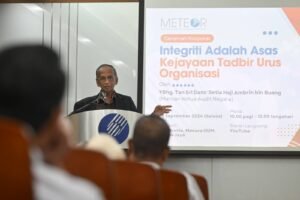The Power of a Single Word

In a quiet courtroom, a taxpayer stood before the law, grappling with the power of a single word: “or.” This seemingly ordinary conjunction, as found in Section 44A(9) of the Income Tax Act 1967, had become the center of a heated legal battle.
The Dispute

The dispute arose when the tax authorities issued notices of assessment to the taxpayer and its associated company, claiming deductions for “project accrued expenses.” These expenses were disallowed, resulting in significant tax implications. The taxpayer, however, argued that the word “or” in Section 44A(9) meant the Director General of Inland Revenue (DGIR) could choose only one action—either raise an assessment or impose penalties—but not both.
“This isn’t just semantics,” the taxpayer’s lawyer asserted. “The law is clear. The word ‘or’ must be read disjunctively. The DGIR is overstepping by pursuing both actions simultaneously.”
The DGIR countered firmly, emphasizing that the interpretation of “or” had to reflect the intention of Parliament, which allowed for actions to be taken in separate contexts—one for the surrendering company and another for the claimant company.
The Judgment

After hours of deliberation, the High Court rendered its decision. “This matter involves mixed questions of fact and law. Such issues fall squarely within the jurisdiction of the Special Commissioners of Income Tax (SCIT), not this court,” the judge declared.
The taxpayer’s application was dismissed, with costs of RM5,000 awarded to the DGIR. Though the taxpayer retained the right to appeal, it was clear that the next battle would have to be fought before the SCIT.
Lesson Learned

This case demonstrates the profound impact of interpreting even a single word in tax law. Precision in language matters, but so does understanding the context and legislative intent.
For taxpayers, it’s a reminder to carefully consider the implications of statutory wording and to use appropriate forums, like the SCIT, for resolving disputes involving mixed questions of fact and law. For the authorities, it underscores the need to balance enforcement with clarity and transparency.
Ultimately, the case teaches that in the complex world of tax, success often hinges on the smallest details. Knowing where to focus and which forum to choose can make all the difference.
Aturan 53 Kaedah-Kaedah Mahkamah 2012 & Subseksyen 44A(9) Akta Cukai Pendapatan 1967






